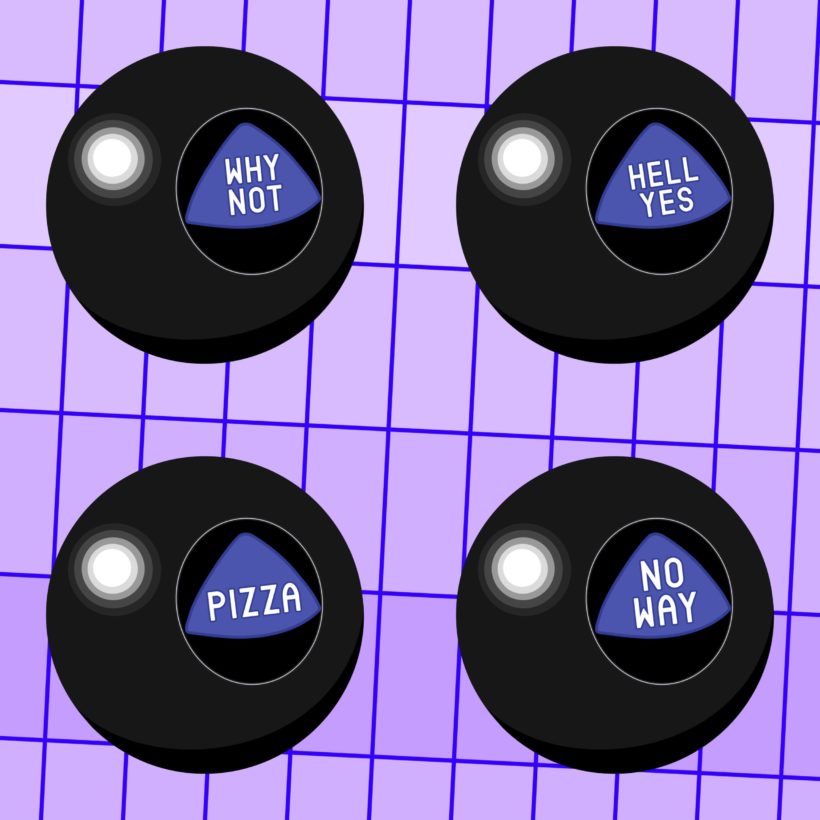In Glennon Doyle’s bestselling book, Untamed — a manifesto for ‘stop pleasing, start living’ — she states an important idea: “Every time you’re given a choice between disappointing someone else and disappointing yourself, your duty is to disappoint that someone else.” Does this statement make you feel uncomfortable? If so, chances are you are a people pleaser.
“I would define people-pleasing as someone who chooses someone else’s beliefs, opinions and needs over themselves and often to the detriment of their own happiness and fulfillment,” Michelle Elman, author of The Joy of Being Selfish: Why you need boundaries and how to set them, told us.
People-pleasing is the default mode for many of us — especially for women. It is a hard trap not to fall into when you grow up in a society that encourages women to play small and be palatable to others, in particular men.
The good news? People pleasing doesn’t need to be in your future. By spotting people-pleasing tendencies and understanding what causes them, you can make decisions that move your life in a different direction.

What drives people-pleasing?
People-pleasing tends to come from a lack of self-esteem or self-belief. “People pleasers struggle to believe that people like them or want to spend time with them and therefore they think they can keep them around by being reliable, giving more of themselves and always being available,” Elman explained.
This is normally developed in childhood or influenced by early experiences. “What motivates us to behave in a certain way usually stems from what helped us ‘survive and thrive’ in our early years,” Penny Haslam, a Motivational Speaker, Communication and Confidence Expert, explained.
“You might have found that being subservient to others was a useful mechanism at a young age, appeasing an angry, overworked or emotionally distant parent. Or maybe, as a girl, you got approval for thinking of others before yourself. If people-pleasing was valuable to you as a behavior then, the chances are it’s your go-to mode of operating now,” she clarified.
The impacts of people-pleasing
Accepting that you are going to disappoint people in life is a big lesson here.
People-pleasing can mean you ignore important areas of life. “People-pleasers often ignore their own well-being, self-care, values and opportunities to lead an authentic and fulfilling life,” Haslam said.
“When we ignore our own needs or fail to calmly get them met, there can be a long tail of suppressed emotion that can surprise us. Underneath a veneer of ‘everything is fine’ you might hold resentment, anger, frustration or sadness that we aren’t thought of more highly of, by others,” Haslam added.
Spotting people-pleaser traits
If you are used to falling into the people-pleasing mode it can be hard sometimes to notice you are even doing it. Classic people-pleasing behavior is going along with what other people want and not prioritizing or vocalizing your own needs in order to avoid being perceived as inconvenient.

Haslam shared some useful examples of classic people-pleasing behavior. Do any of these actions resonate with you?
- You always offer to drive friends home after a night out, even though you’re tired and have an early start.
- You ‘go with the flow’ when your mates or partner say how they want to do things.
- You’re having a birthday party but rather than celebrating, you’re anxious about everyone getting along and enjoying themselves.
- Your boss tells you to work overtime and your response indicates that you’re happy about it — even though it means changing the plans you’d been looking forward to.
- You find it hard to express a strong opinion or ask directly for your needs to be met, no matter how small they might be.
- You get tired from being around people, find yourself doing things you’re not that into, and maybe aren’t sure anymore about what you do like.
Stopping people-pleasing
People-pleasing doesn’t need to be a life sentence. By putting strategies in place you can change the way you behave. This starts by exploring whether you are a people pleaser. Self-awareness of your behavior and learning the situations in which you are prone to people-pleasing is key.
Haslam suggests keeping a diary or journaling to start off noticing patterns. Pay particular notice to conversations you have with the people in your life. “Ask yourself: did you allow them to dominate the conversation and did they end up with their desired outcome? Then reflect in your journal on how you felt during these conversations and the outcomes. Noticing your emotions around people-pleasing is vital for getting out from under the behavior.”
It’s important to also consider the type of situations where you are most likely to do this. “Perhaps it’s a type of person that unsettles you, such as an authority figure (a parent or boss) or when a friend or partner expresses that they’re unhappy or worried about something,” Haslam suggested.

Once you have self-awareness around your behavior and what you might like to change, it means next time this comes up you can consciously choose to behave differently. “Learn how to say no and sit in the discomfort of doing that for the first time. The first few times will be scary, messy and clumsy but the only way to get better at setting boundaries is by continuing to set them,” Elman advised.
We can often over-dramatize things in our heads and spiral into anxiety. Old feelings can come to the surface. Haslam suggests taking a reality check. “Explore what would happen if you chose not to attend to the needs of others, and imagine expressing what you want, for a change. Would your partner walk out on you? Would your best friend refuse to talk to you?”
Accepting that you are going to disappoint people in life is a big lesson here. “Letting those opinions exist is a really empowering part of reversing the narrative of people-pleasing,” Elman pointed out.
In the words of Dita Von Teese: “’You can be the ripest, juiciest peach in the world, and there’s still going to be somebody who hates peaches.”
We only recommend products we have independently researched, tested, and loved. If you purchase a product found through our links, Sunday Edit may earn an affiliate commission.







